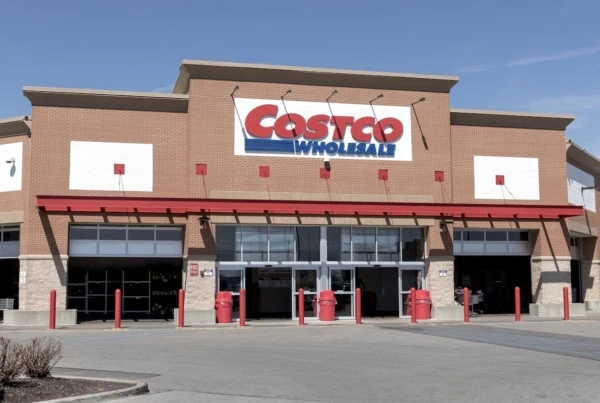Groceries are a significant expense in the average monthly budget. And typically, the more people in your family, the more noteworthy that expense tends to be.
While it would be nice to shop exclusively at small, specialty grocery stores with only local, organic products, price is at the top of most people’s minds during their regular grocery shopping trip. But that doesn’t necessarily mean they’re looking for the absolute cheapest products—value matters. Most shoppers want to know they’re getting something fair in exchange for their money.
So while you might have a few good guesses about which grocery stores boast the lowest prices, you might be surprised by which grocers give you the best value for your money.
Today, I’ll share the 10 best value grocery stores in America, as ranked by your peers. While it’s still a smart move to comparison shop, as different grocers excel in different areas, this is a good starting point for determining where you’ll find the best values on average.
Methodology

These rankings are based on “value scores” provided by the YouGov US Grocery Store Rankings 2025 report.
The value scores, sourced from the YouGov BrandIndex brand tracker, are based on respondents’ answers to two questions:
- Which of the following grocery stores do you think represents GOOD VALUE FOR MONEY? By that we don’t mean ‘cheap,’ but that the brands offer a customer a lot in return for the price paid.
- Which of the following grocery stores do you think represents POOR VALUE FOR MONEY? By that, we don’t mean ‘expensive,’ but that the brands do not offer a custom much in return for the price paid.
The greater the score, the greater the perceived value.
I’ll also note that this report included “quality scores,” which were based on respondents’ answers to the following two YouGov questions:
- Which of the following grocery stores do you think represents GOOD QUALITY?
- Which of the following grocery stores represents POOR QUALITY?
Where applicable, I’ve noted when stores on our value list also ranked among the top 10 for quality.
Related: Food Costing a Fortune? 12 Tips for How to Save Money on Groceries
Shop Smarter at These Top-Ranked Grocery Stores

Most grocery shoppers agree that “when I go grocery shopping I usually stick to a strict budget,” according to the YouGov survey.
But which grocery stores help that strict budget stretch farthest? Are they the chains that are known for cheap prices, such as Walmart? Or is it trendier stores like Trader Joe’s?
Keep reading to find out which grocery stores survey takers say offer the best value.
Note: Grocery stores are listed in reverse order of value score (so, from the lowest score to the highest score).
10. Amazon Fresh
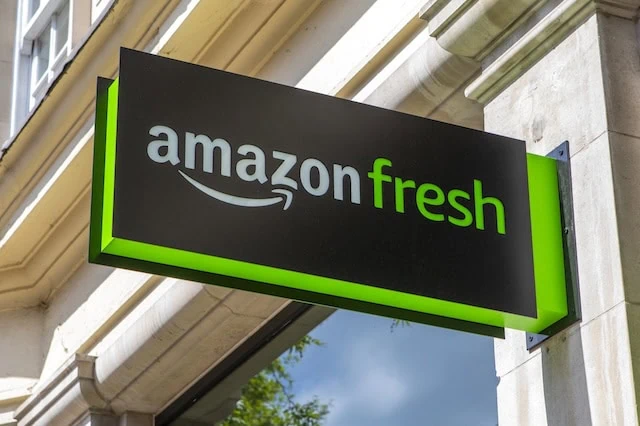
- Value score: 8.4
Life can get busy, making the convenience of services like Amazon Fresh—both an online and physical grocer run by retail giant Amazon—appealing. You can shop online for same-day delivery, schedule free grocery pickup at a time convenient for you, or avoid the long checkout with Dash Cart.
Amazon Fresh is an even better value for people with a Prime Visa credit card and a Prime membership as they get 5% cash back. And part of that value proposition is quality, where Amazon Fresh also made the top-10 list.
Just one note on relative value: Value scores are net scores—so this isn’t, say, an 8.4 out of 10. In fact, the top-ranked grocer by value has a score that’s exactly five times higher than Amazon Fresh.
9. Save A Lot
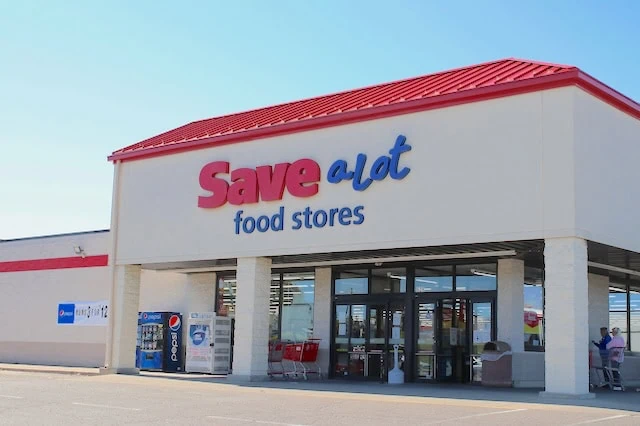
- Value score: 8.9
True to its name, Save A Lot does indeed save people a lot, meriting a spot among the best value grocery store list and edging out Amazon Fresh for No. 9.
Save A Lot has more than 800 stores, predominantly in the Midwest, but with clusters in the South and Northeast. Shoppers who use the brand’s loyalty program, Save A Lot Rewards, can get the best value out of the store. Program members earn one dot for every dollar spent in-store at participating stores and can earn more during activated challenges. (Purchases paid with an EBT card or a Healthy Benefits card count.) Dots can then be used to redeem rewards in the app.
Related: Stop Shrinkflation! 14 Products Affected + Tips to Save Money
8. BJ’s Wholesale
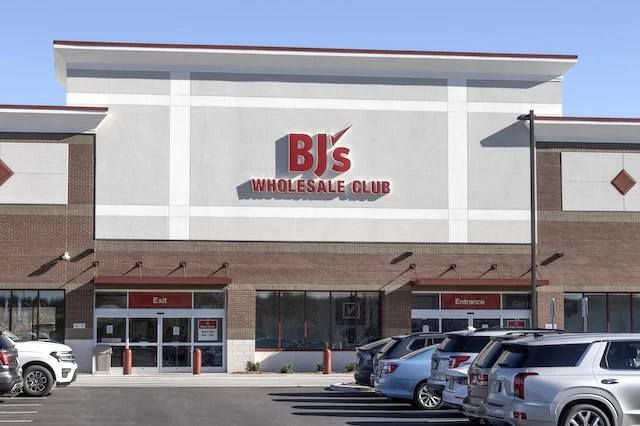
- Value score: 11.0
BJ’s Wholesale Club is a membership-based wholesaler with more than 210 locations in 17 states. You have to pay an annual fee to shop at BJ’s, but the chain offers membership discounts to the following groups:
- Veterans and active-duty military personnel
- Medical professionals
- First responders
- Government employees
- Teachers, staff members, and educators
- College students
In exchange for membership fees, BJ’s members can save money with low grocery store prices, use curbside pickup, have items shipped to their homes, and check out with ExpressPay in the app.
How can they keep grocery prices down? Customers can usually buy items in bulk. So you’ll be unsurprised to find that there are other wholesale clubs on this list of value-oriented grocers.
7. Trader Joe’s
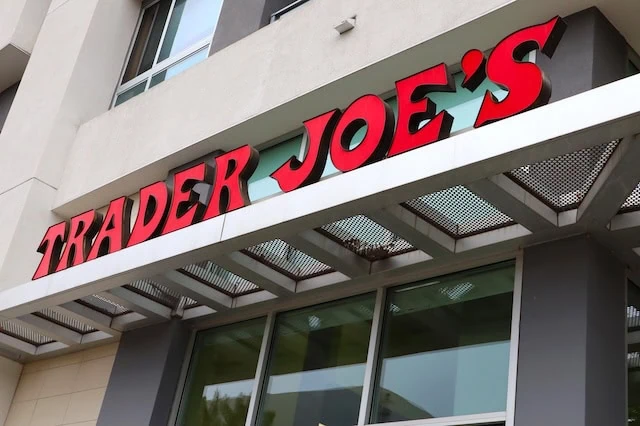
- Value score: 14.8
The No. 7 value slot goes to Trader Joe’s, which is known for fair prices—and a whole lot more.
Trader Joe’s carries intriguing products you won’t find elsewhere, as well as some of the best seasonal treats of any grocer. It has a generous return policy, and it provides a fun shopping experience. I also personally know someone who collects their “Mystery Bags” whenever they can find them.
This chain is able to keep prices low because a large percentage of its products are private-label. It also doesn’t run ads, and it’s quick to cut items that don’t sell well.
On top of ranking No. 7 for value, it ranked No. 3 for quality—a fantastic combination considering that some of the grocers that made the value cut don’t even appear in the top-10 grocery stores by quality.
Related: Beyond Roadside Assistance: 10 AAA Discounts You May Not Know About
6. Kroger
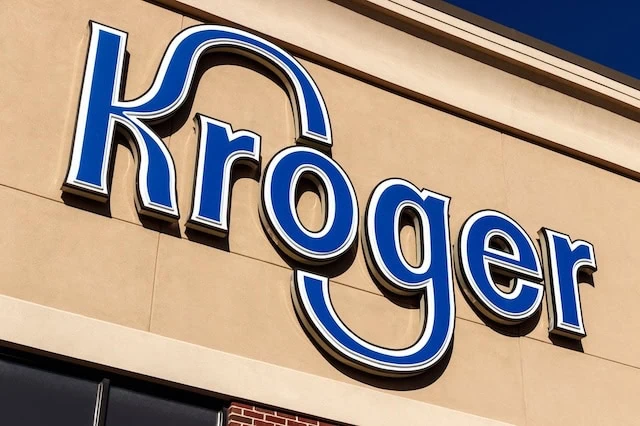
- Value score: 17.5
This is the point in the rankings where you really start to see some separation in value scores. Kroger, No. 6 among the best value grocery stores, has a score that’s more than double No. 10 Amazon Fresh.
Kroger is a gigantic regional grocer that boasts more than 2,730 supermarkets and multi-department stores across numerous brands—including Food4Less, Baker’s, Ralphs, Harris Teeter, and more—that serve 11 million customers daily across 35 states and the District of Columbia. It also boasts more than 1,700 fuel centers and even roughly 130 Fred Meyer Jewelers locations.
The Kroger brand itself has more than 1,200 locations in 16 states that serve more than 11 million customers every day. In addition to grocery staples, it sells household supplies, health products, ready-to-eat meals, and more.
And Kroger offers a fair deal to its shoppers, boasting the No. 6 slot for both value and quality.
Related:
5. Sam’s Club
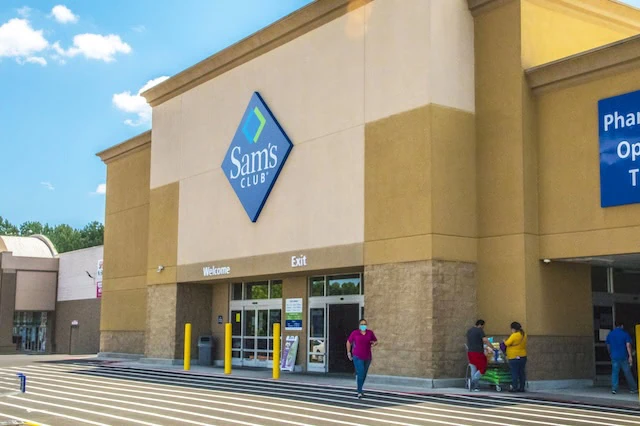
- Value score: 25.0
Sam’s Club, Walmart’s paid-membership warehouse division, is another popular option for shoppers who love to buy in bulk and are willing to pay an annual fee in exchange for cheaper prices. You can find one of Sam’s Club’s 600-plus locations in 45 states and Puerto Rico.
The products aren’t just cheap—they’re often pretty good, or at least, that’s what Sam’s No. 7 quality ranking would indicate. Sam’s Club’s store brand, Member’s Mark, is particularly popular among customers. The highest-rated Member’s Mark products keep people coming back … but it’s not a one-stop shop, either, which is why there are some items you should never buy at Sam’s Club.
Related: 3 Best Consumer Staples ETFs You Can Buy
4. Target
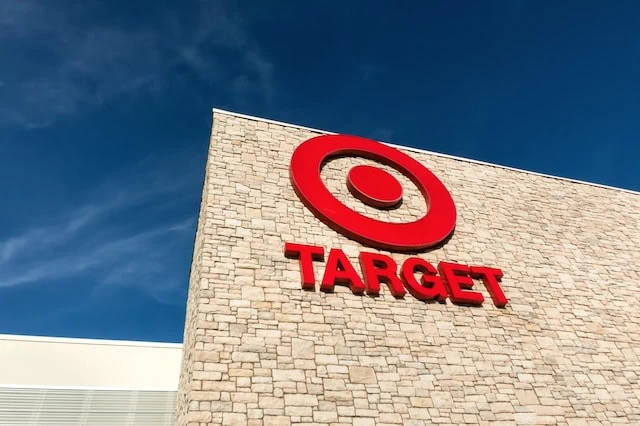
- Value score: 29.2
More than 75% of people who live in the U.S. live within 10 miles of a Target. So there’s a good chance you live near one. And if you’re like YouGov’s respondents, there’s also a good chance you consider Target, which is ranked fourth overall, to be good value compared to the grocery competition.
More impressively? It ranked second in quality.
While there are certainly items you should avoid at Target, its grocery products—including those under its white-label Good & Gather brand—generally sport positive reviews.
One thing worth noting: YouGov also compiled “consideration scores” based on answers to the question “When you are in the market next to purchase groceries, from which of the following would you consider purchasing?” Most grocery stores ranked differently across generations: Gen Z, Millennials, Gen X, and Baby Boomers. Target was one of only two stores to have the same ranking—second—across all four generations.
3. Costco
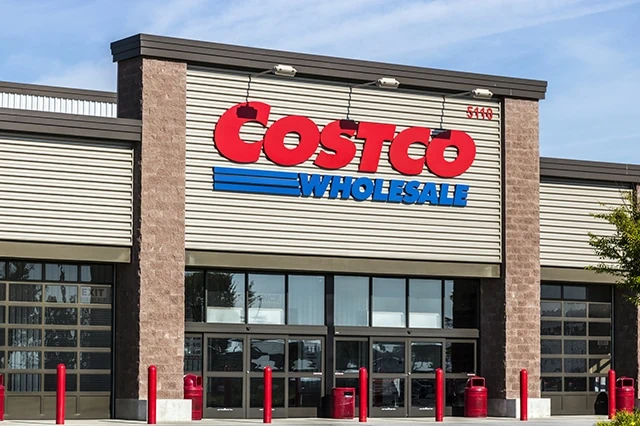
- Value score: 35.1
Most people won’t be surprised to see Costco among the top three grocery stores by value.
This membership-centric warehouse club boasts more than 800 locations worldwide. The stores don’t offer a limitless selection of choices, but instead curates options based on what they believe members will like best. It’s also extremely well-known for its Kirkland Signature store brand.
Membership dues make up a small percentage of revenues but a massive portion of the company’s profits, which allows Costco to keep its prices low. Customers also save by purchasing in bulk. And because Costco is a well-known name, it rarely spends any money on advertising—more savings it passes along to customers.
While there are certainly some products you shouldn’t buy at Costco, people tend to agree that most of the items are solid—hence a No. 4 ranking in product quality.
Related: 10 Costco Tips & Tricks All Shoppers Should Know
2. Aldi
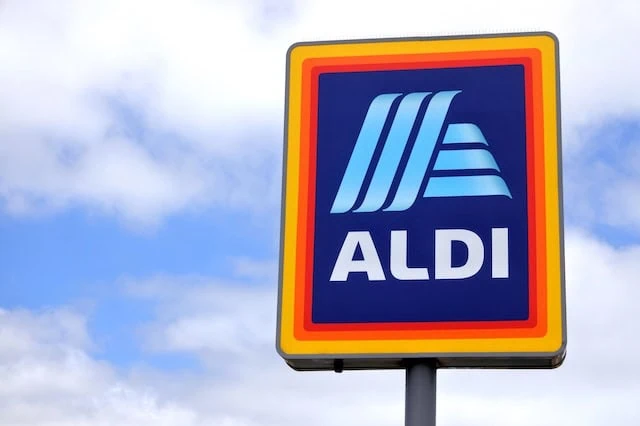
- Value score: 38.6
Earning the value silver is European brand Aldi, which has focused on affordability since its 1961 and brought that knack for savings over to the U.S.
Aldi is able to maintain reasonable prices by implementing several strategies. Employees don’t need to spend time collecting shopping carts because employees must pay a quarter to check out a cart, which is returned when the cart is put back properly. Stores don’t waste money on plastic bags; shoppers are expected to bring their own reusable totes. And many of the produce items are sold in prepackaged units so workers don’t need to weigh and price them.
There are a few items you should avoid at Aldi, but overall, its goods make the grade, earning a No. 5 ranking in quality.
1. Walmart
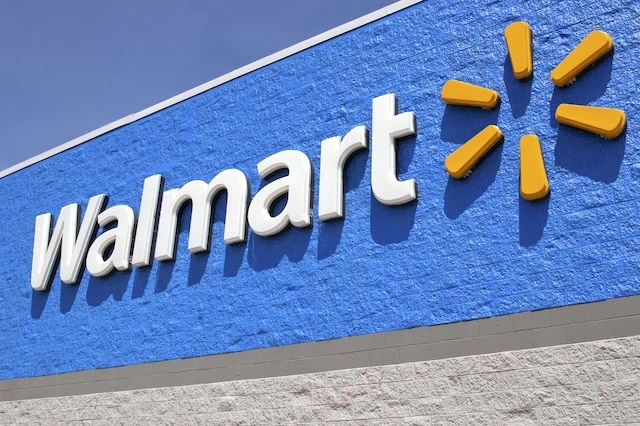
- Value score: 42.0
No. 1 in value, and No. 1 in many Americans’ hearts, is Walmart.
Walmart is a global behemoth, operating nearly 11,000 stores and clubs in 19 countries, including 4,600 stores—not just Supercenters, but also discount stores, Neighborhood Markets and small-format stores—in the U.S. That doesn’t even include its 600 Sam’s Club locations.
Its size and scale have allowed Walmart to become synonymous with low prices—so it should be unsurprising that it earned the top spot among best value grocery stores.
Walmart’s sterling reputation for prices doesn’t fully translate to product quality—there are plenty of products you should skip at Walmart, as sometimes the quality lacks—but it still managed to earn a top-10 quality score, ranking eighth among all grocers.
Lastly, Walmart was the only other store to earn the same consideration rank among all four generations—from young to old, everyone considers Walmart to be No. 1.
Related: Experience More, Spend Less: 10 Experiences Seniors Can Do Cheaper






